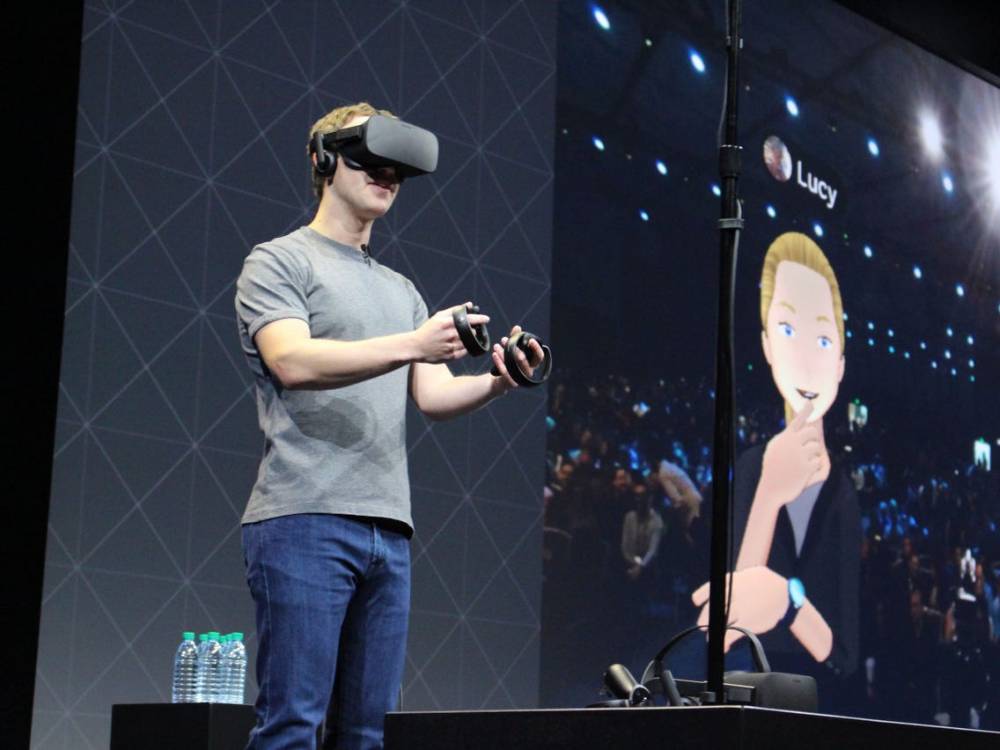
Zuckerberg aspires to transform Facebook into an online metaverse
Zuckerberg aspires to transform Facebook into an online'metaverse.'
Mark Zuckerberg has outlined his five-year plan to transform Facebook from a social media network to a "metaverse company."
A metaverse is a virtual world in which people can game, work, and communicate in a virtual environment, frequently through the use of virtual reality headsets.
The Facebook CEO described it as "an embodied internet in which, rather than viewing content, you become a part of it."
According to him, people should not live their lives through "small, glowing rectangles."
“That is not the natural way for people to interact,” he said, referring to the reliance on mobile phones.
“At a lot of today's meetings, you're looking at a grid of faces on a screen. That is also not how we process information.”
‘Infinite office’
One application he mentioned was the ability to virtually enter a 3D concert after watching it on a mobile phone screen.
“You feel as if you're in other places, having different experiences that you wouldn't necessarily be able to have on a 2D app or webpage, such as dancing or different types of fitness,” he explained.
Additionally, Facebook is developing a "infinite office" that will allow users to design their ideal workspace using virtual reality.
“In the future, rather than communicating via phone, you will be able to sit as a hologram on my couch, and I will be able to sit as a hologram on your couch, and it will feel as if we are in the same room, even if we are in different states or hundreds of miles apart,” he explained. “I believe that is quite powerful.”
Facebook has made significant investments in virtual reality, spending $2 billion (£1.46 billion) to acquire Oculus, the company that develops its VR products.
In 2019, Facebook launched Facebook Horizon, an invitation-only immersive environment in which users can mingle and chat with a cartoon avatar via Oculus headsets.
Zuckerberg acknowledged that current virtual reality headsets were "a little clunky" and needed to be improved before people could work in them all day.
However, he argued that Facebook's metaverse would be "accessible across... diverse computing platforms," such as virtual reality, augmented reality, personal computers, mobile devices, and game consoles.
Metaverse origins
The concept of a metaverse is gaining popularity among technology companies, who believe it could serve as a new 3D internet, connecting virtual worlds where people congregate.
It originated in Neal Stephenson's 1992 science fiction novel Snow Crash, where it served as the internet's virtual-reality successor.
Technological companies have attempted to incorporate metaverse elements into popular games such as Animal Crossing, Fortnite, and Roblox.
This includes the organization of live events such as concerts and tournaments that bring together millions of players from around the world.
Behavioural data
"One of the reasons Facebook is investing so heavily in VR/AR is that the granularity of data available when users interact with these platforms is orders of magnitude greater than with screen-based media," Verity McIntosh, a VR expert at the University of the West of England, told the BBC.
"Now, it's not just about where I click and what I share; it's about where I go, how I stand, what I look at for the longest period of time, and the subtle ways in which I physically move my body and react to certain stimuli. It provides a direct line to my subconscious, which is priceless to a data capitalist.
"It appears improbable that Facebook would want to change a business model that has served them so well in terms of prioritizing user privacy and giving users meaningful control over how their behavioural data in the'metaverse' is used."
Further issues could arise as a result of tech giants like Facebook defining and colonising the space, while traditional governance structures struggle to keep up with technological change, she added.

